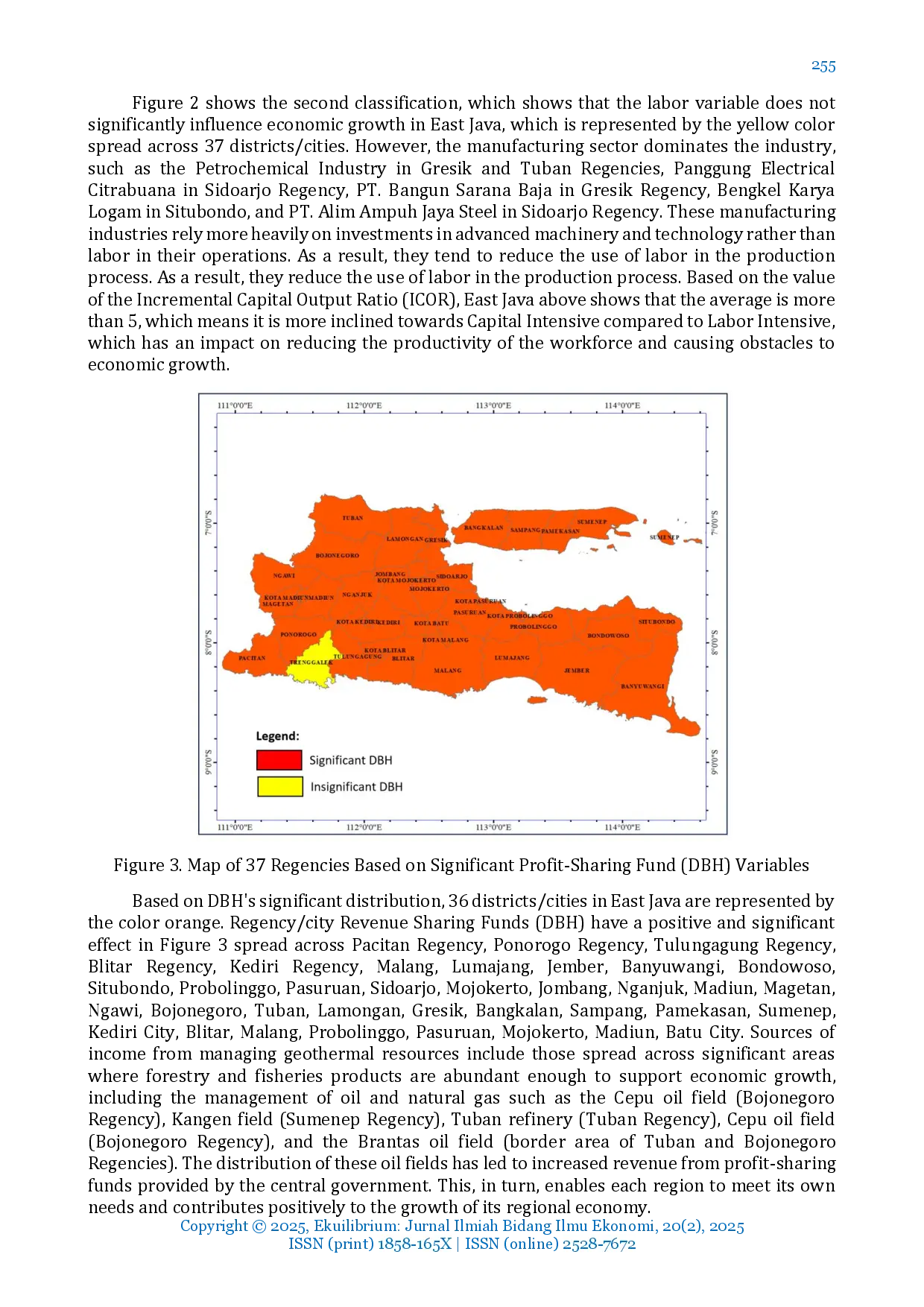UNEJUNEJ
Journal of Southeast Asian Human RightsJournal of Southeast Asian Human RightsThis article examines theoretical and empirical discussions of strategies to overcome state-corporatist and developmentalist practices in East Kalimantan, Indonesia. The term state-corporatism describes a political condition in which the state maintains strong links to state backed groups. Developmentalism is an overarching concept used to describe the tendency of a state to maximize economic growth through investment while disregarding the fundamental rights of its people. The case of East Kalimantan Province was selected due to its status as one of the most resource-rich provinces of Indonesia. However, the provinces wealth of natural resources has also led to widespread deforestation and to the displacement of its indigenous peoples. This paper seeks to analyse the ways in which indigenous spirituality and activism can lessen the negative effects of development projects sustained by state-corporatism. This article contemplates what strategies that can be executed to diminish state-corporatism effects in East Kalimantan, particularly in two important districts: Regency of Kutai Kartanegara and Bontang Municipality. This article argues that indigenous spirituality is a key to battle state-corporatisms influences. Indigenous spirituality as forum internum is still a potential tool of advocacy. By capitalizing the role of shamans, indigenous peoples might still have opportunities to reclaim and defend their cultural rights.
The article concludes that indigenous spirituality remains a crucial element in contesting state-corporatism, despite challenges like co-option through financial aid.This spirituality, functioning as a private conscience, serves as a potent advocacy tool.By leveraging the roles of shamans, indigenous communities can still strive to reclaim and defend their cultural and communal rights.The study underscores that while legal reforms are insufficient, the preservation of indigenous spirituality offers a unique pathway to resist exploitation and advocate for justice.
Further research should investigate how indigenous spiritual practices can be legally recognized and protected within the Indonesian legal framework, ensuring their role in environmental stewardship and resource management. Additionally, a comparative study examining the success of indigenous-led advocacy movements in other resource-rich regions could reveal valuable strategies for East Kalimantan. Finally, exploring the potential for collaborative governance models—integrating traditional ecological knowledge with modern conservation practices—presents an innovative avenue for promoting sustainable development that respects both human rights and the spiritual connection to the land. Considering existing research that suggests the weaknesses of decentralization in environmental protection, future investigation could focus on the transparency of local government policies relating to resource extraction, and assess where loopholes exist that allow for collusion between corporations and political actors. This analysis could contribute to the development of concrete legal and regulatory reforms to strengthen accountability. This knowledge can be used to formulate targeted interventions with regional governments that foster responsible investment, environmental protection and the recognition of indigenous rights.
| File size | 165.22 KB |
| Pages | 15 |
| DMCA | ReportReport |
Related /
RESCOLLACOMMRESCOLLACOMM Secara keseluruhan, portofolio saham bank syariah terbukti lebih kompetitif dan efisien dalam hal risiko dan imbal hasil, sehingga dapat dipertimbangkanSecara keseluruhan, portofolio saham bank syariah terbukti lebih kompetitif dan efisien dalam hal risiko dan imbal hasil, sehingga dapat dipertimbangkan
RESCOLLACOMMRESCOLLACOMM The results indicate that each method produces different estimates, with the PUC method yielding a slightly higher total liability. The AAN method offersThe results indicate that each method produces different estimates, with the PUC method yielding a slightly higher total liability. The AAN method offers
RESCOLLACOMMRESCOLLACOMM Penelitian ini memberikan wawasan penting bagi pengambil keputusan dalam memilih metode aktuaria yang tepat untuk valuasi kewajiban pensiun berdasarkanPenelitian ini memberikan wawasan penting bagi pengambil keputusan dalam memilih metode aktuaria yang tepat untuk valuasi kewajiban pensiun berdasarkan
UMPOUMPO Hasil penelitian menunjukkan tiga klasifikasi spasial. Pertama, terdapat wilayah di mana tidak ada variabel prediktor yang berpengaruh signifikan terhadapHasil penelitian menunjukkan tiga klasifikasi spasial. Pertama, terdapat wilayah di mana tidak ada variabel prediktor yang berpengaruh signifikan terhadap
Useful /
RESCOLLACOMMRESCOLLACOMM Namun, siswa sering mengalami kesulitan dalam memilih kegiatan ekstrakurikuler yang paling sesuai, yang dapat menyebabkan motivasi rendah dan partisipasiNamun, siswa sering mengalami kesulitan dalam memilih kegiatan ekstrakurikuler yang paling sesuai, yang dapat menyebabkan motivasi rendah dan partisipasi
UINSIUINSI Dokumen ini tidak menyediakan abstrak dalam bahasa Indonesia maupun bahasa Inggris. Berdasarkan konteks, dokumen ini merupakan indeks subjek dan indeksDokumen ini tidak menyediakan abstrak dalam bahasa Indonesia maupun bahasa Inggris. Berdasarkan konteks, dokumen ini merupakan indeks subjek dan indeks
UINSIUINSI Terjadi perubahan mendasar dalam pengaturan tindak pidana di Aceh dari Qanun 2003 ke Qanun 2014, dengan semakin kuatnya penerapan syariat Islam. SanksiTerjadi perubahan mendasar dalam pengaturan tindak pidana di Aceh dari Qanun 2003 ke Qanun 2014, dengan semakin kuatnya penerapan syariat Islam. Sanksi
USKUSK Artikel ini menyajikan argumen independen yang serius mengapa sastra perlu dipertahankan dalam kurikulum ELT (Pengajaran Bahasa Inggris) di Indonesia.Artikel ini menyajikan argumen independen yang serius mengapa sastra perlu dipertahankan dalam kurikulum ELT (Pengajaran Bahasa Inggris) di Indonesia.







